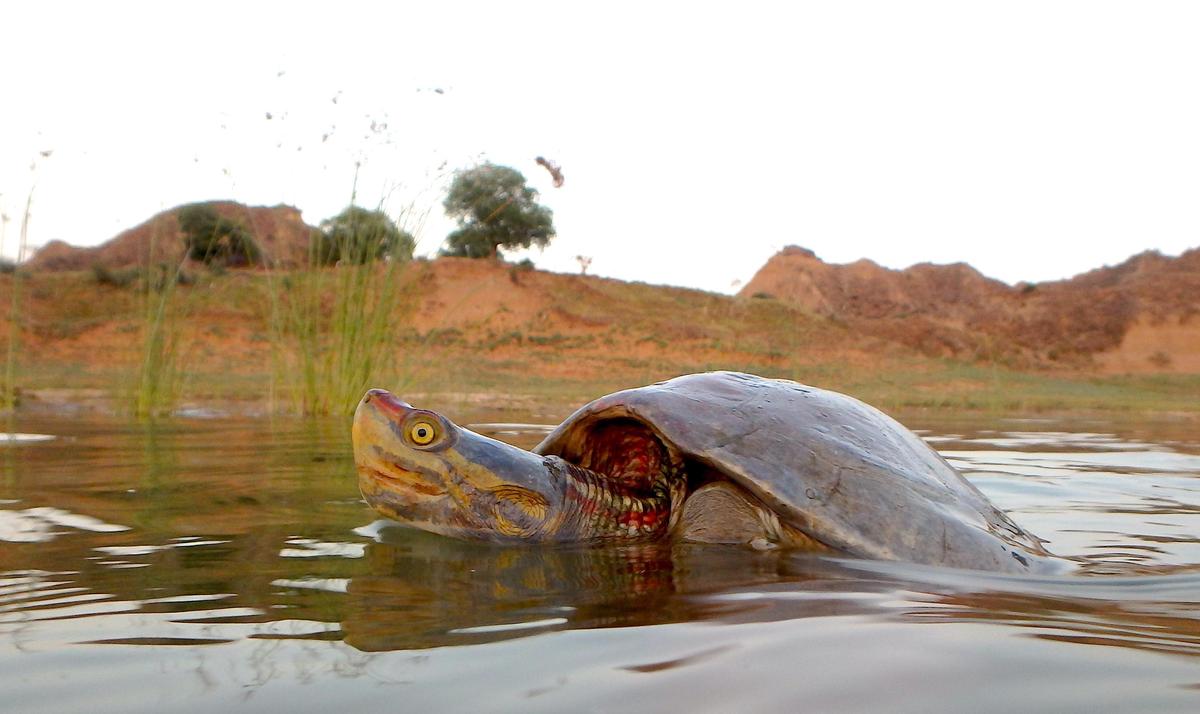
The battle to bring freshwater turtles back from the brink
The Hindu
Conservationists and government departments are fighting against all odds to prevent the smuggling of turtles within and outside the country; the challenge is not just to prevent the illegal trade of turtles, some of which are endangered, as pets and for meat but also to rehabilitate those recovered from anti-trafficking operations
: On November 27, West Bengal Police seized 270 kg of turtle calipee (a gelatinous layer found in the lower shells of turtles, believed to be used in traditional Chinese medicine) in Malda district. The consignment was meant to be smuggled to Bangladesh.
Ten days earlier, Uttar Pradesh Forest Department officials recovered a total of 789 Indian flapshell turtles and softshell turtles near Amethi.
Another large consignment of 143 live turtles, meant to be smuggled to Bangladesh, was recovered by the Border Security Force (BSF) in West Bengal’s Murshidabad district in January this year.
These incidents of turtle smuggling are among the many reported across various States by international trafficking networks, which have kept law enforcement agencies on their toes for the past several years. Experts say the consignments intercepted by law enforcement agencies may be just a fraction of the actual volume of illegal trade. The demand for freshwater turtles and their body parts sees a spike every year during winter when it is easier to transport animals for extended periods.
In a move to curb turtle trafficking, earlier this month, the Conference of the Parties (COP) adopted India’s proposal to transfer two species of freshwater turtles found in the country — the red-crowned roofed turtle ( Batagur kachuga) and the Leith’s Softshell Turtle ( Nilssonia leithii) — to Appendix I (which lists the most endangered species that need the highest level of protection) of the Convention on International Trade in Endangered Species of wild fauna and flora (CITES).
Conservation experts and law enforcement agencies have welcomed CITES (an international treaty to ensure that trade in wild animals and plants does not threaten their survival) upgrade of the two species at a time when illegal trade is threatening their natural habitats.
Shailendra Singh, programme director, Turtle Survival Alliance-India (TSA), described the CITES upgrade of the Nilssonia leithii as an “anticipatory” step. He said it is noteworthy that the Ministry of Environment, Forest and Climate Change (MOEFCC) mooted the proposal, which the COP adopted. The change in the status of the red-crowned roofed turtle, he added, would help save their population in the Chambal region. Mr. Singh also said that the conservation of freshwater turtles and tortoises is a long journey where a few milestones have been achieved. Still, a continuous vigil is needed in the coming years.













